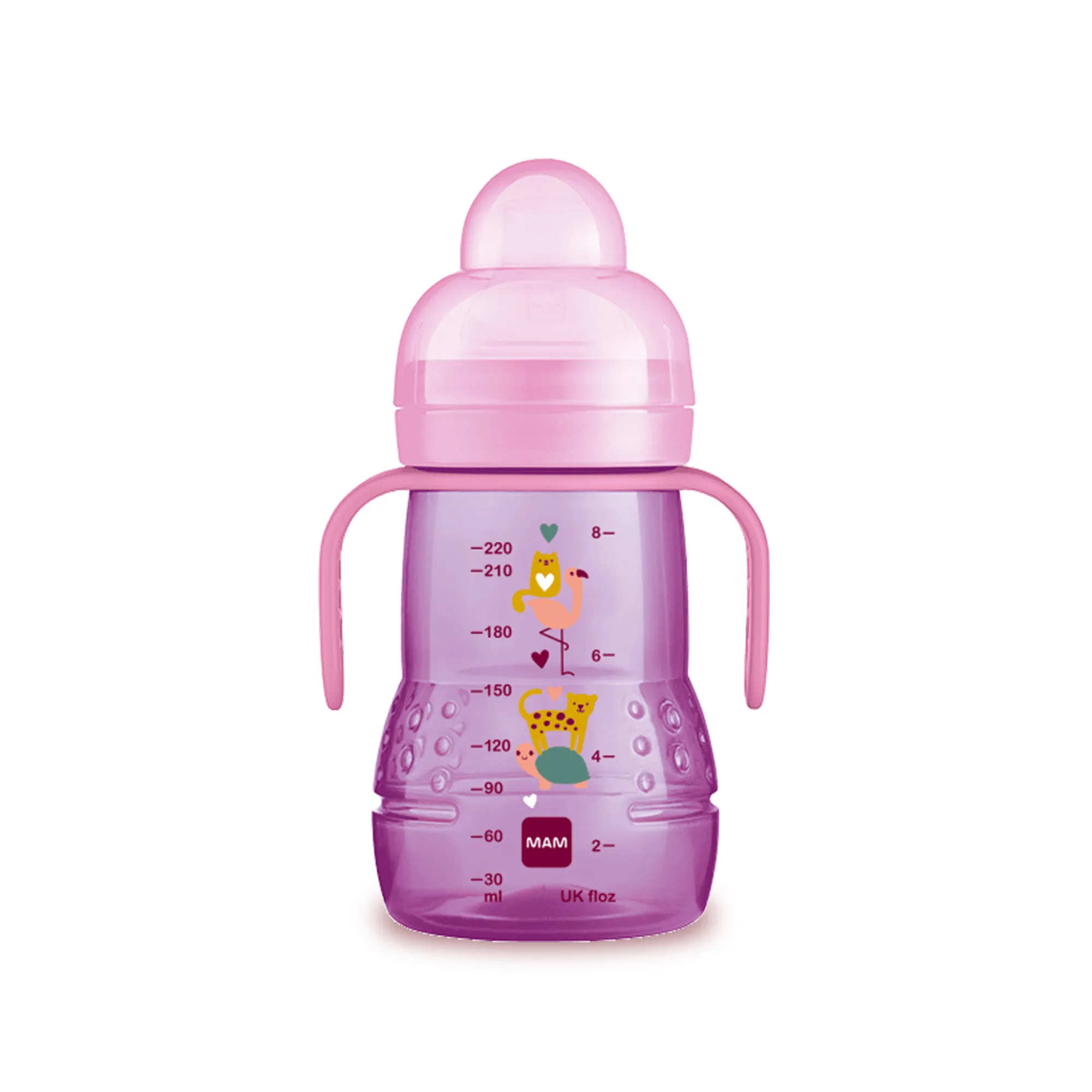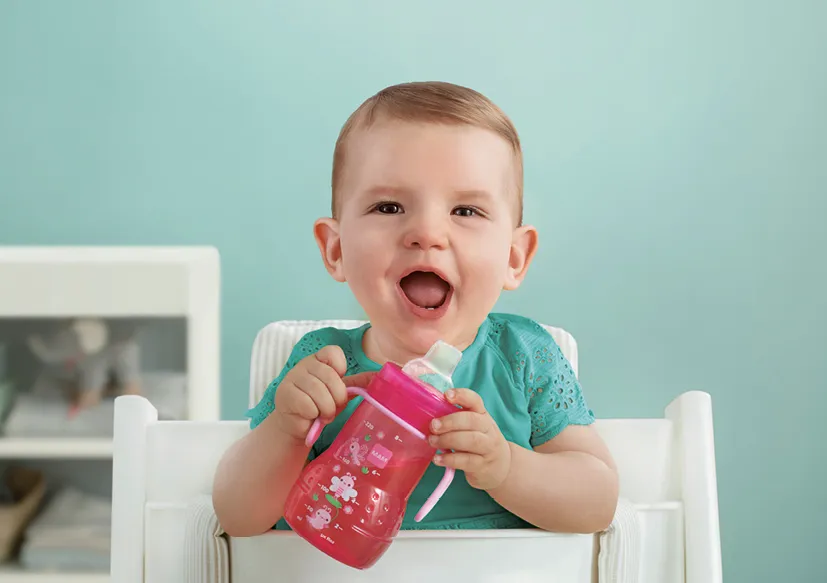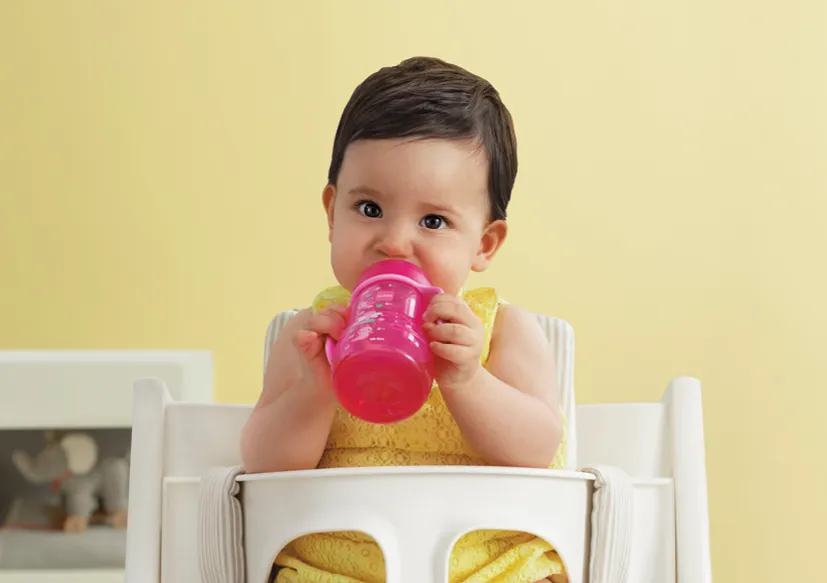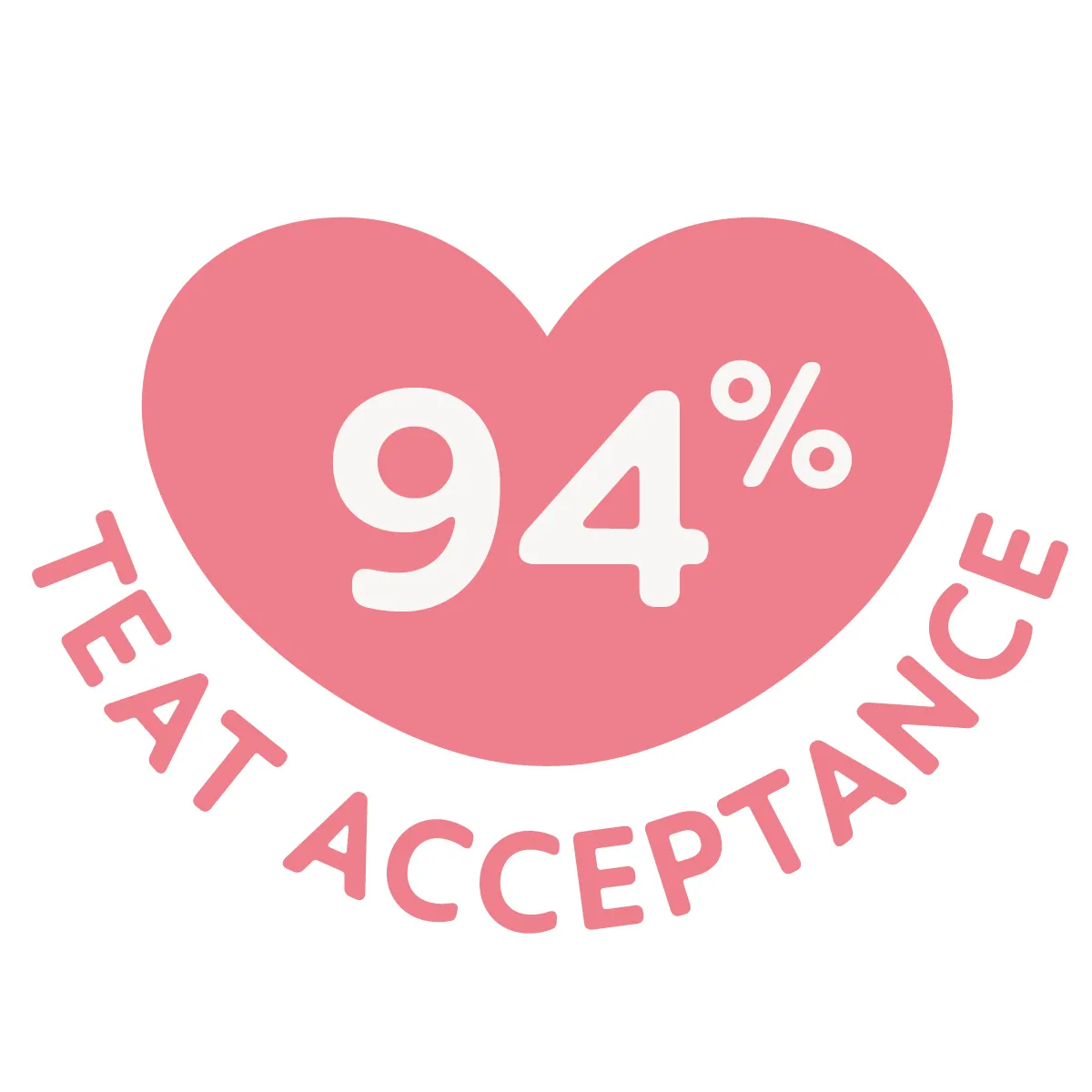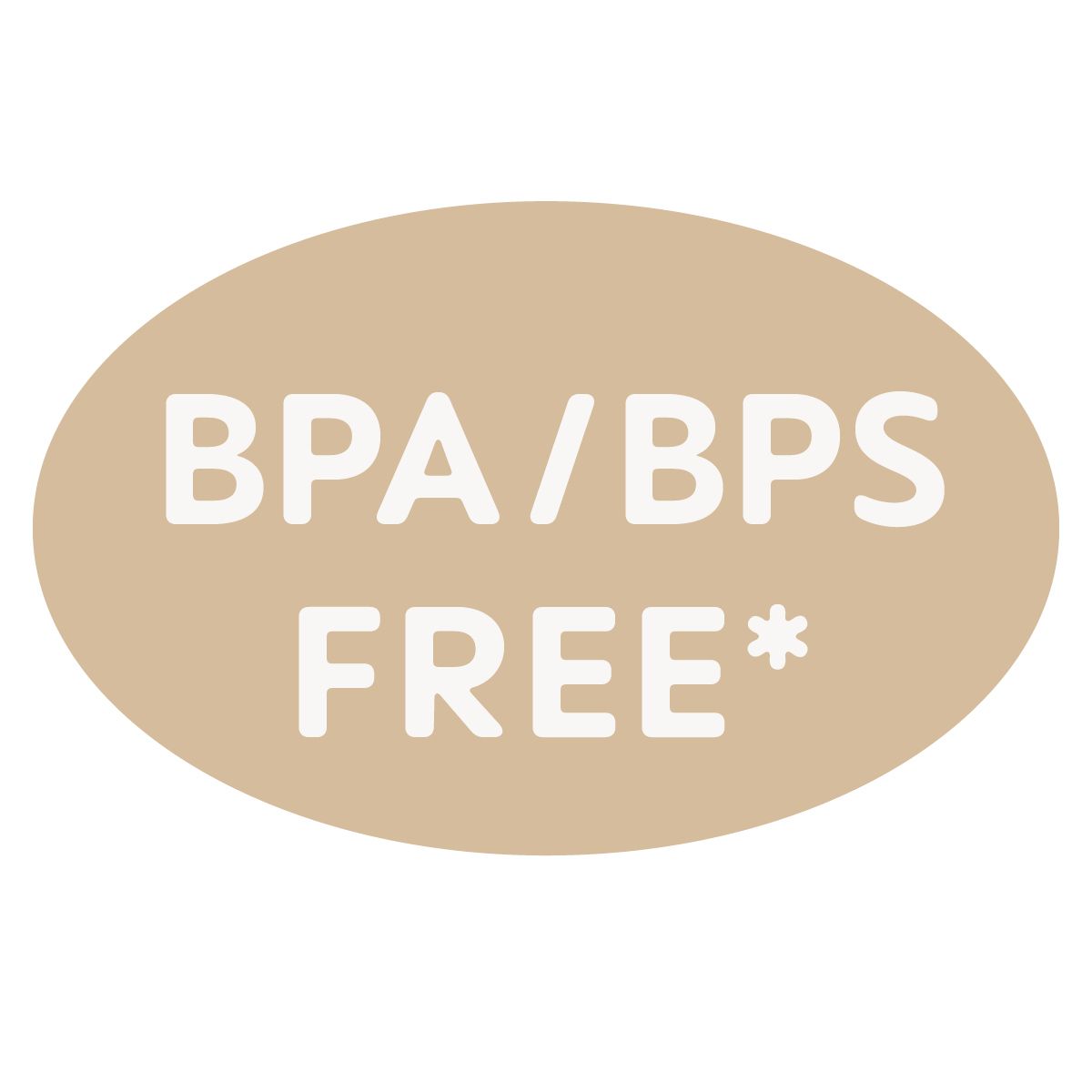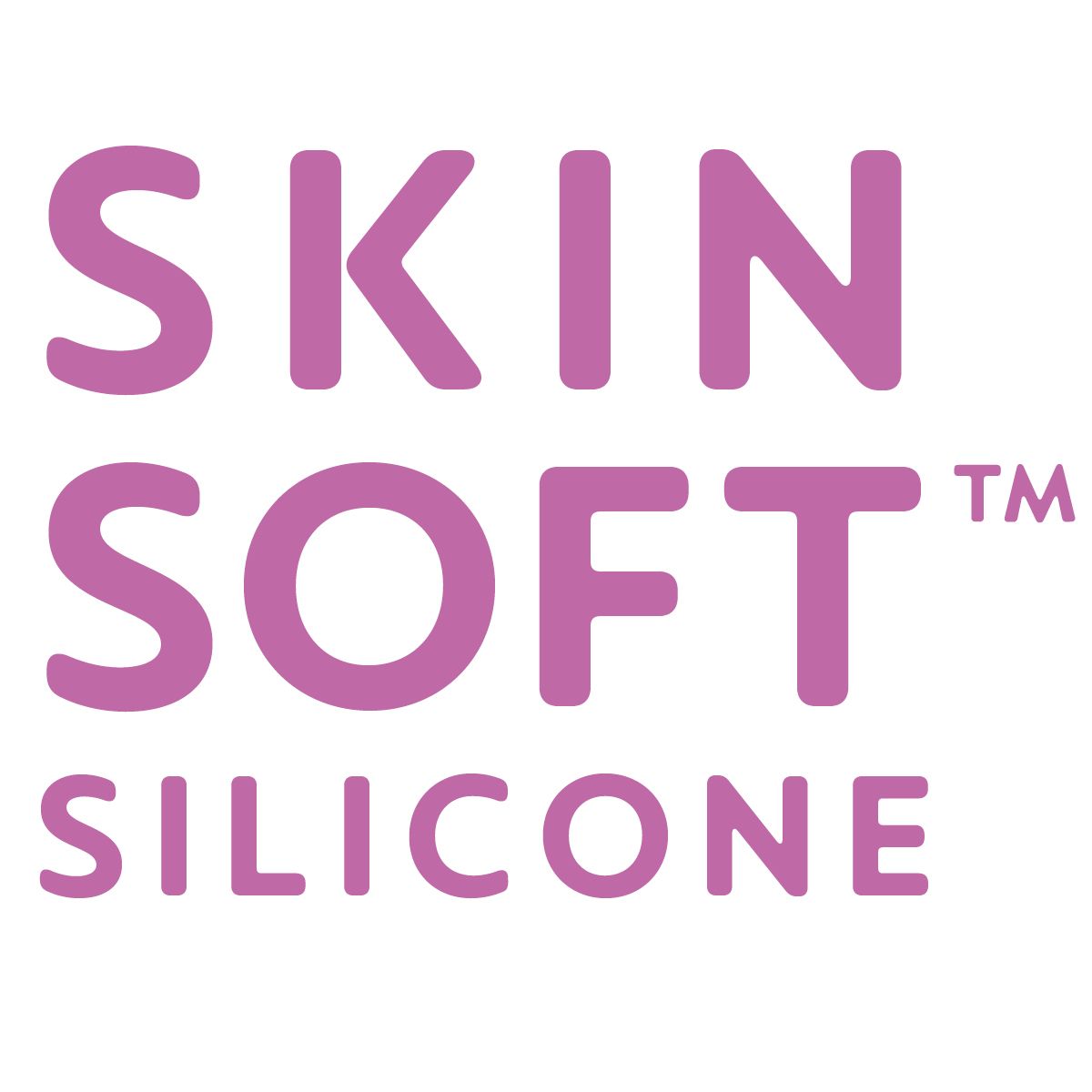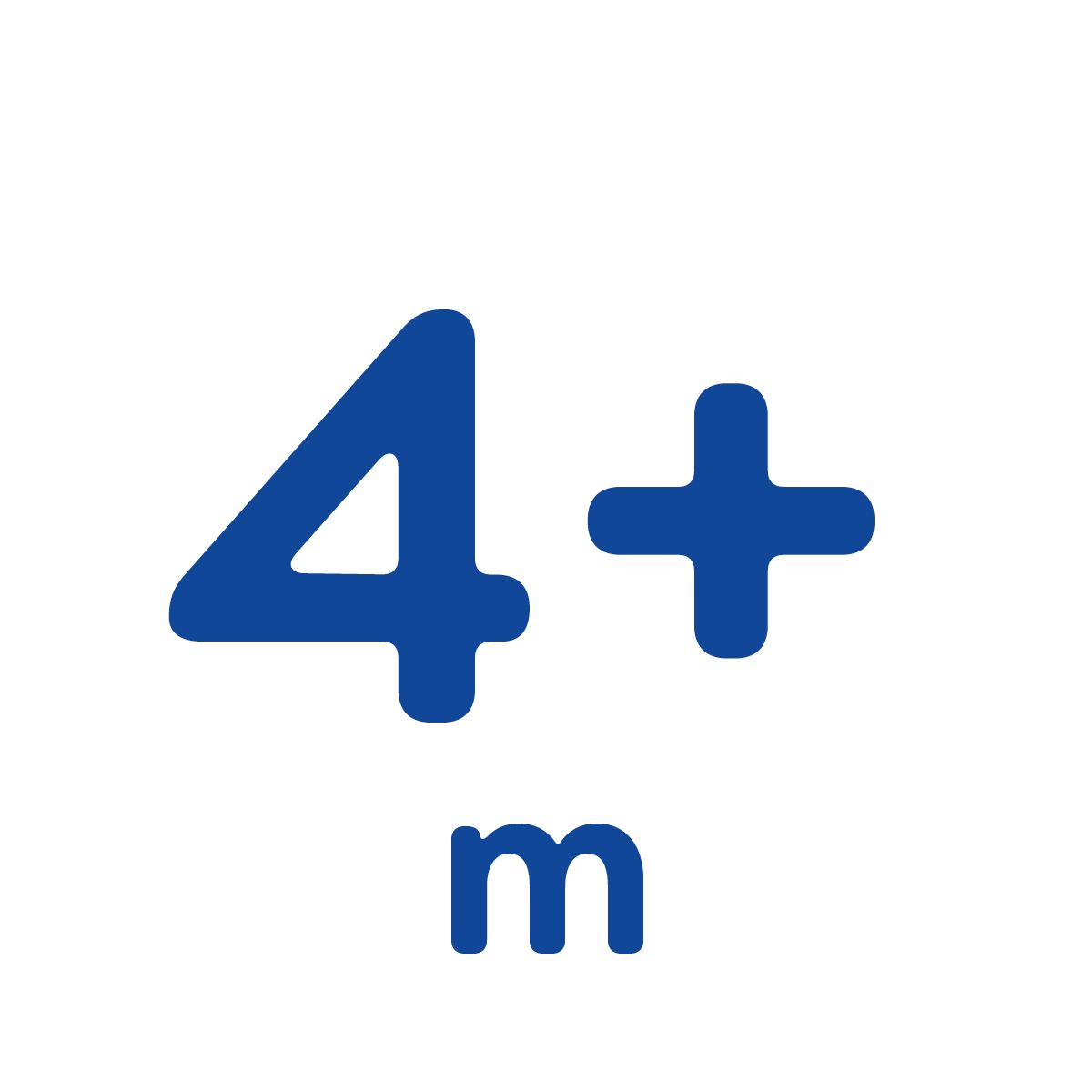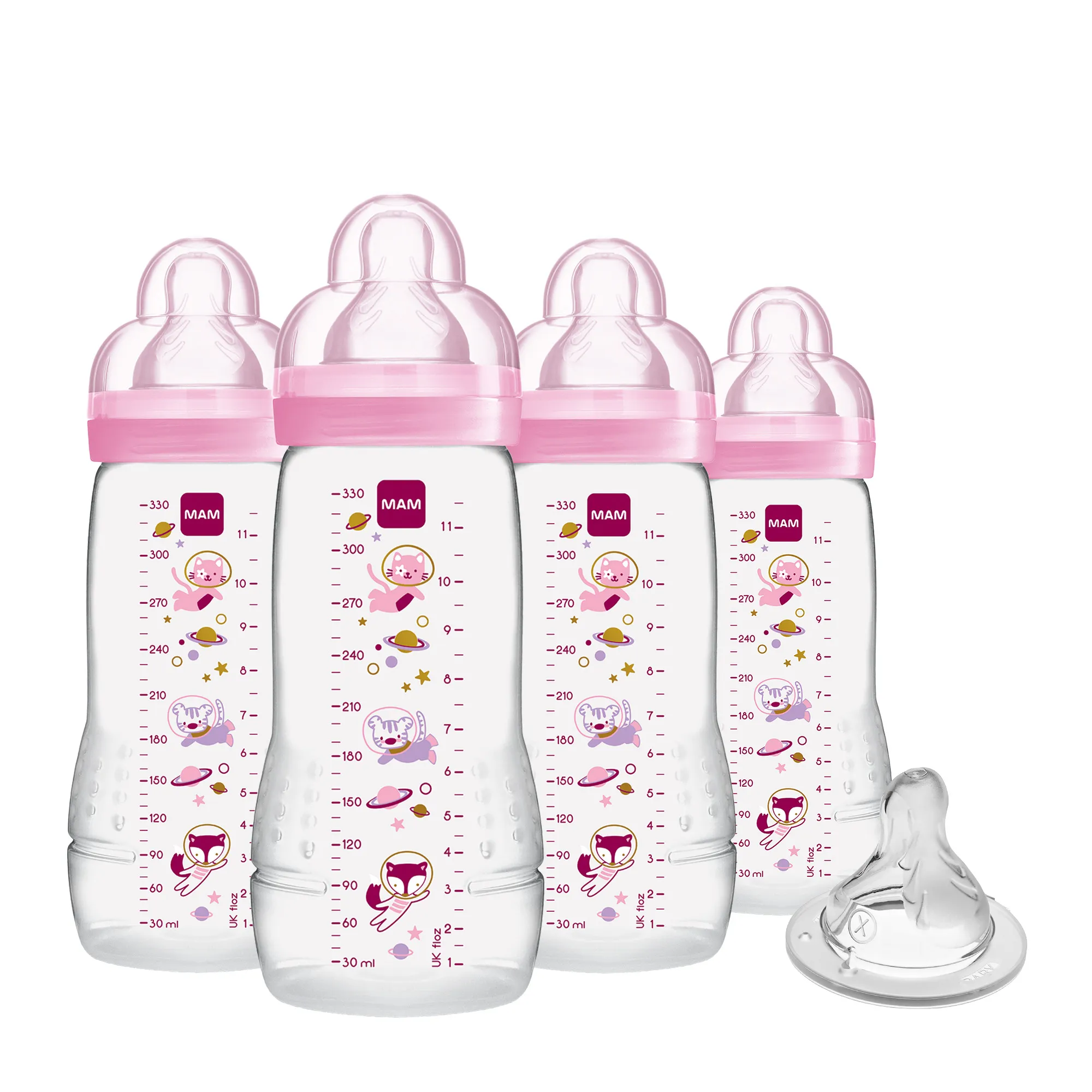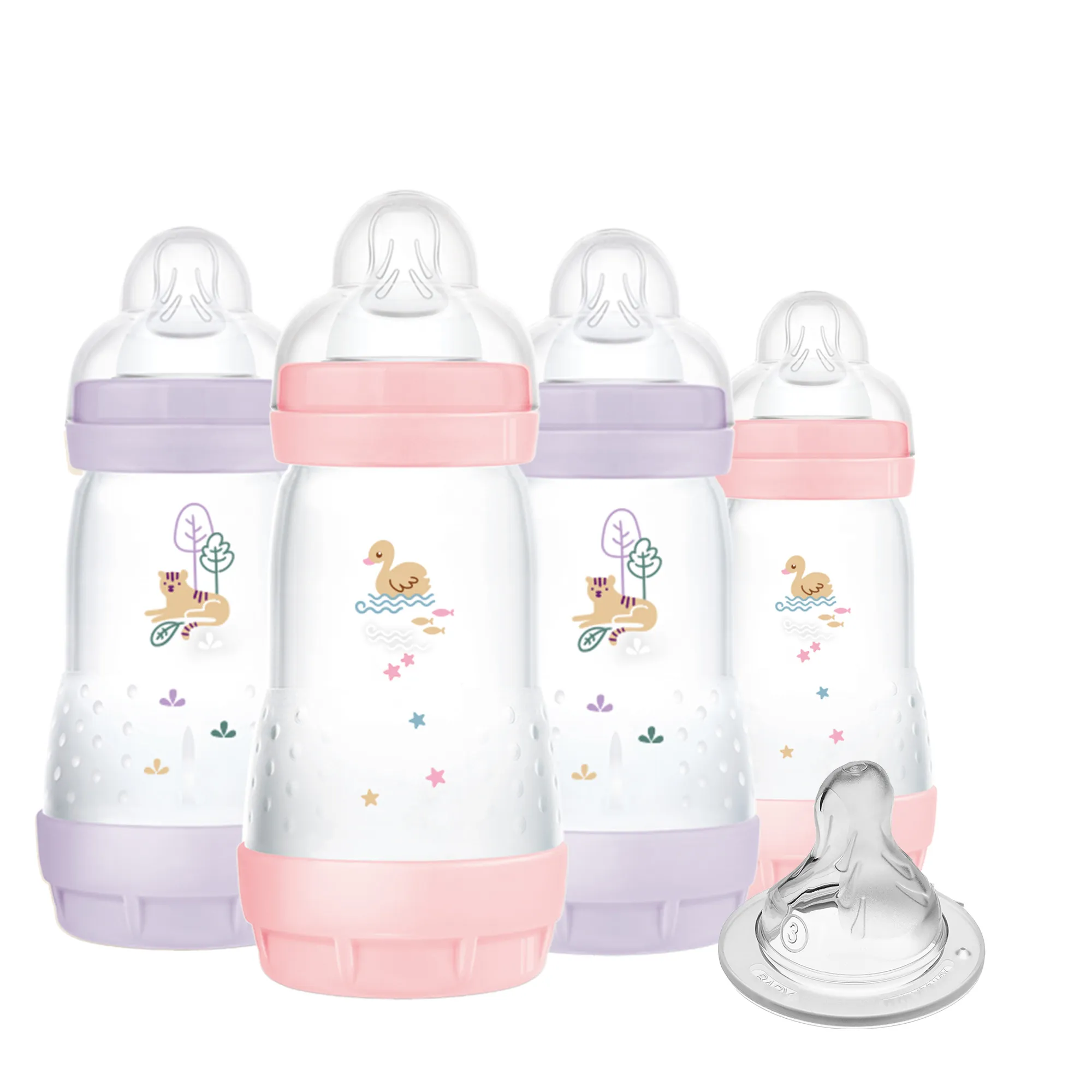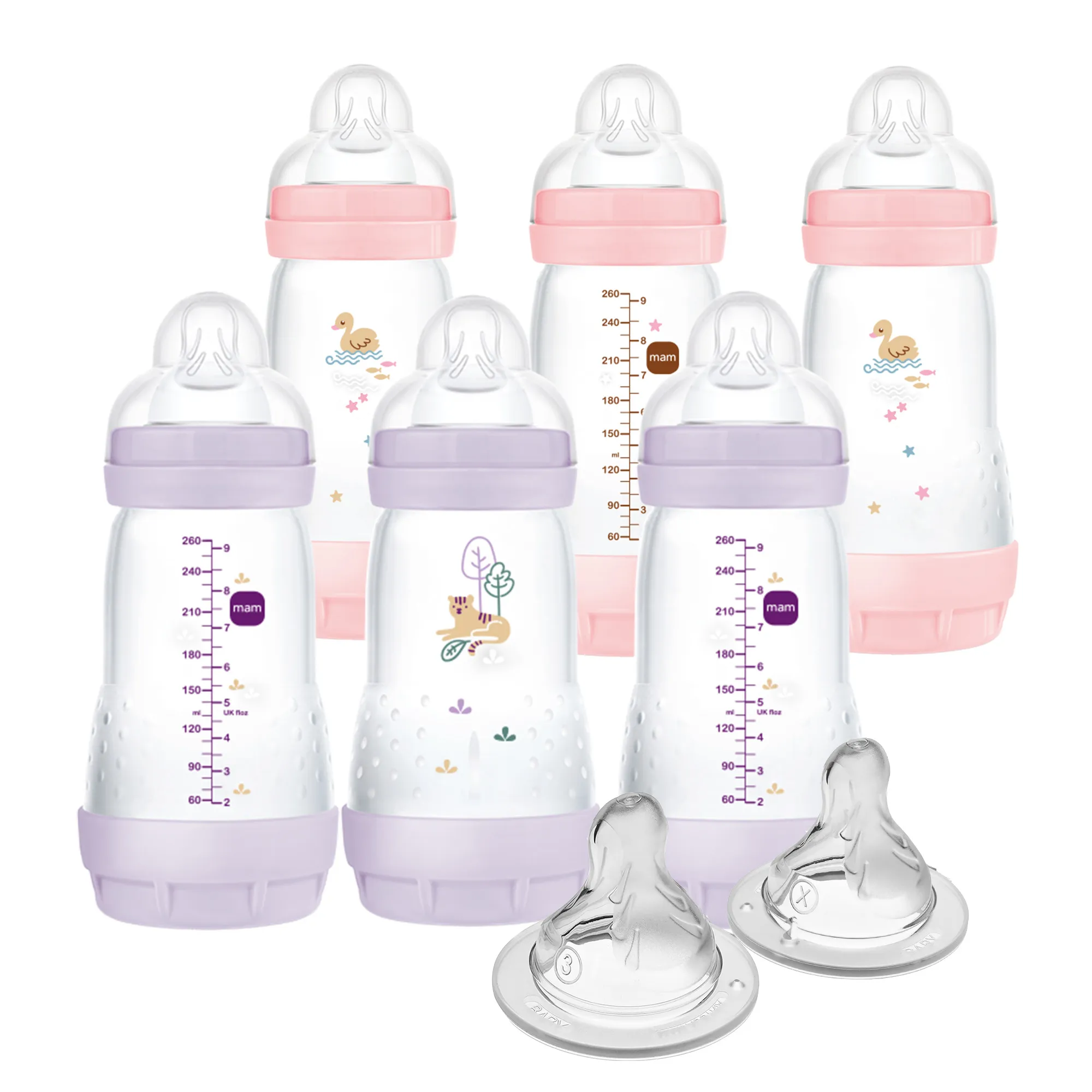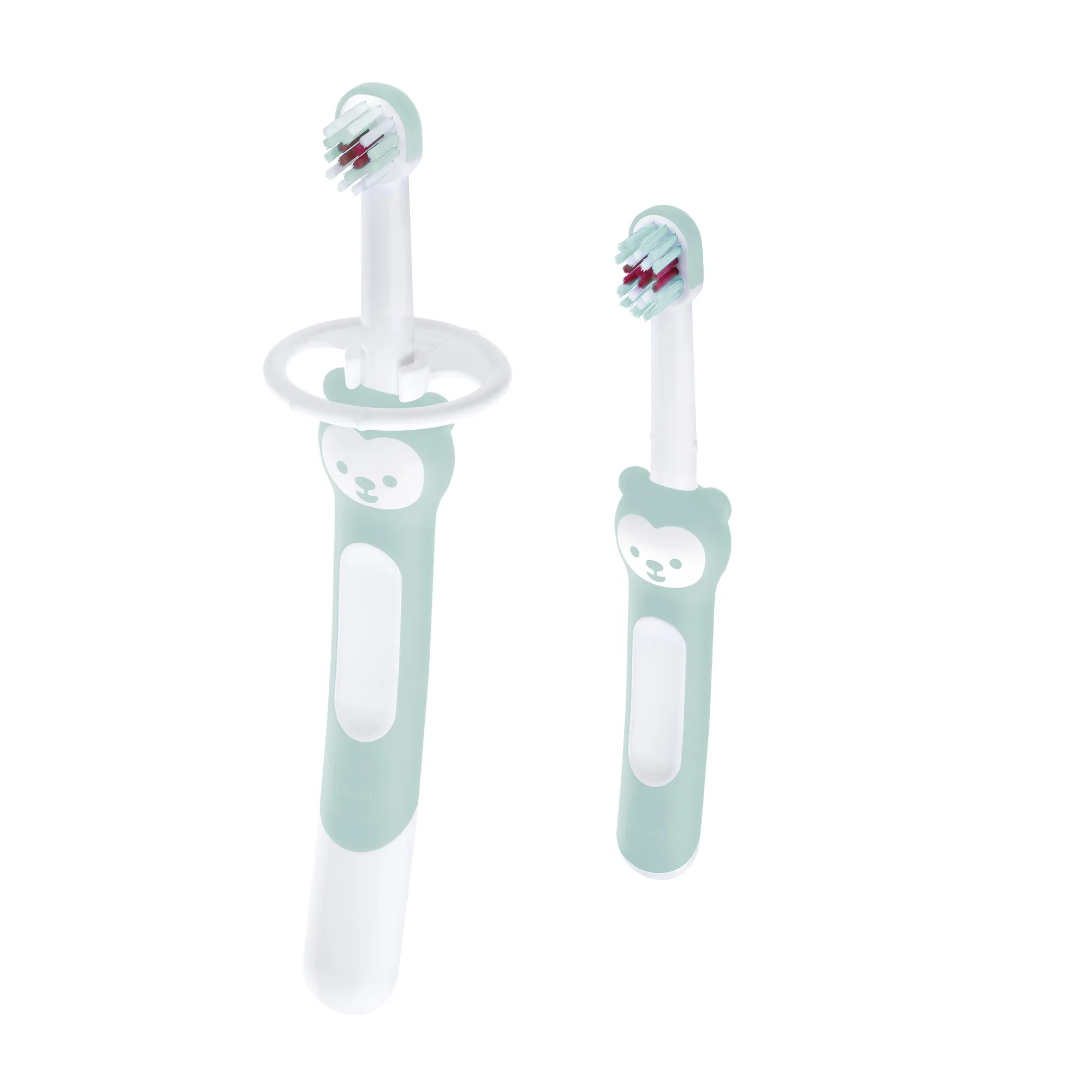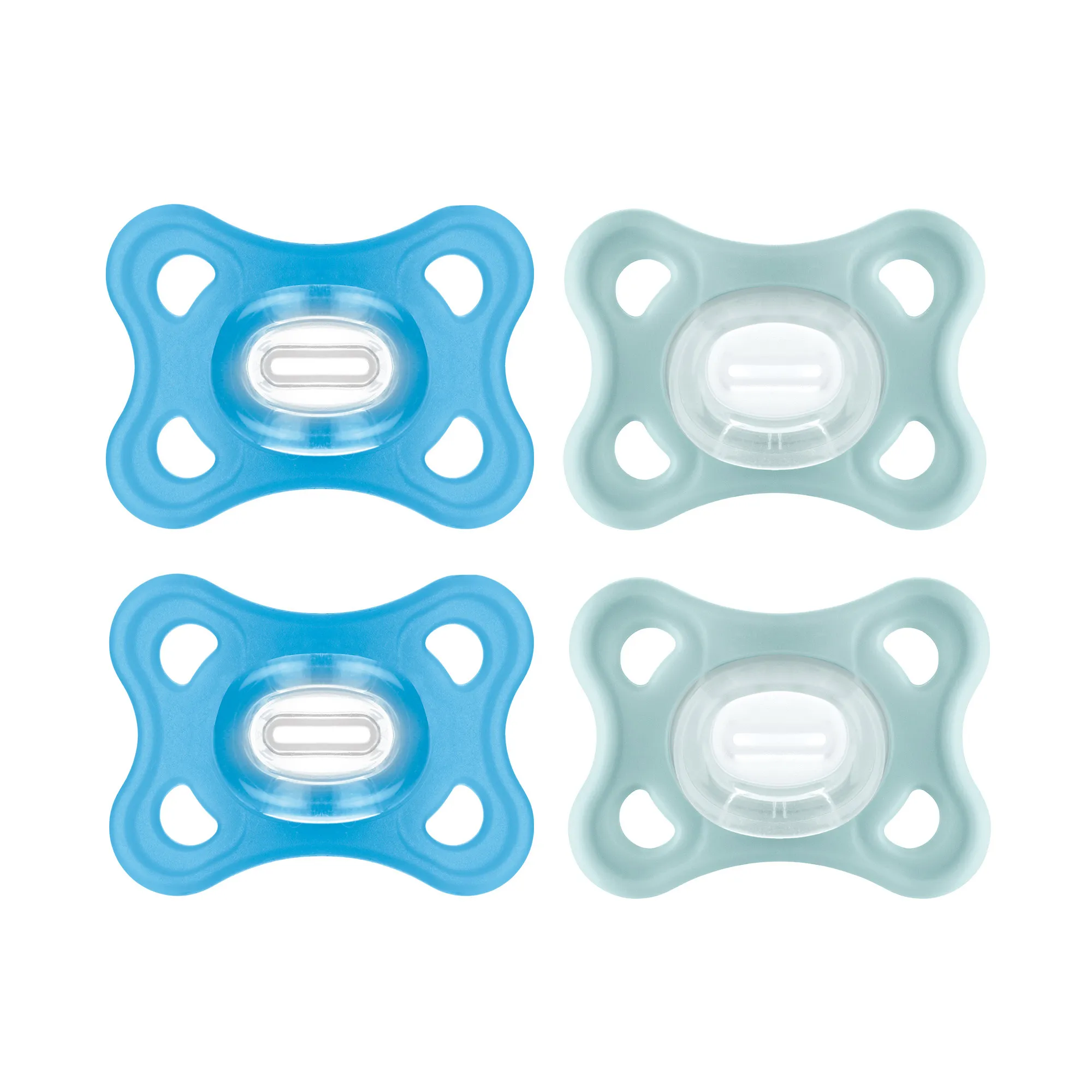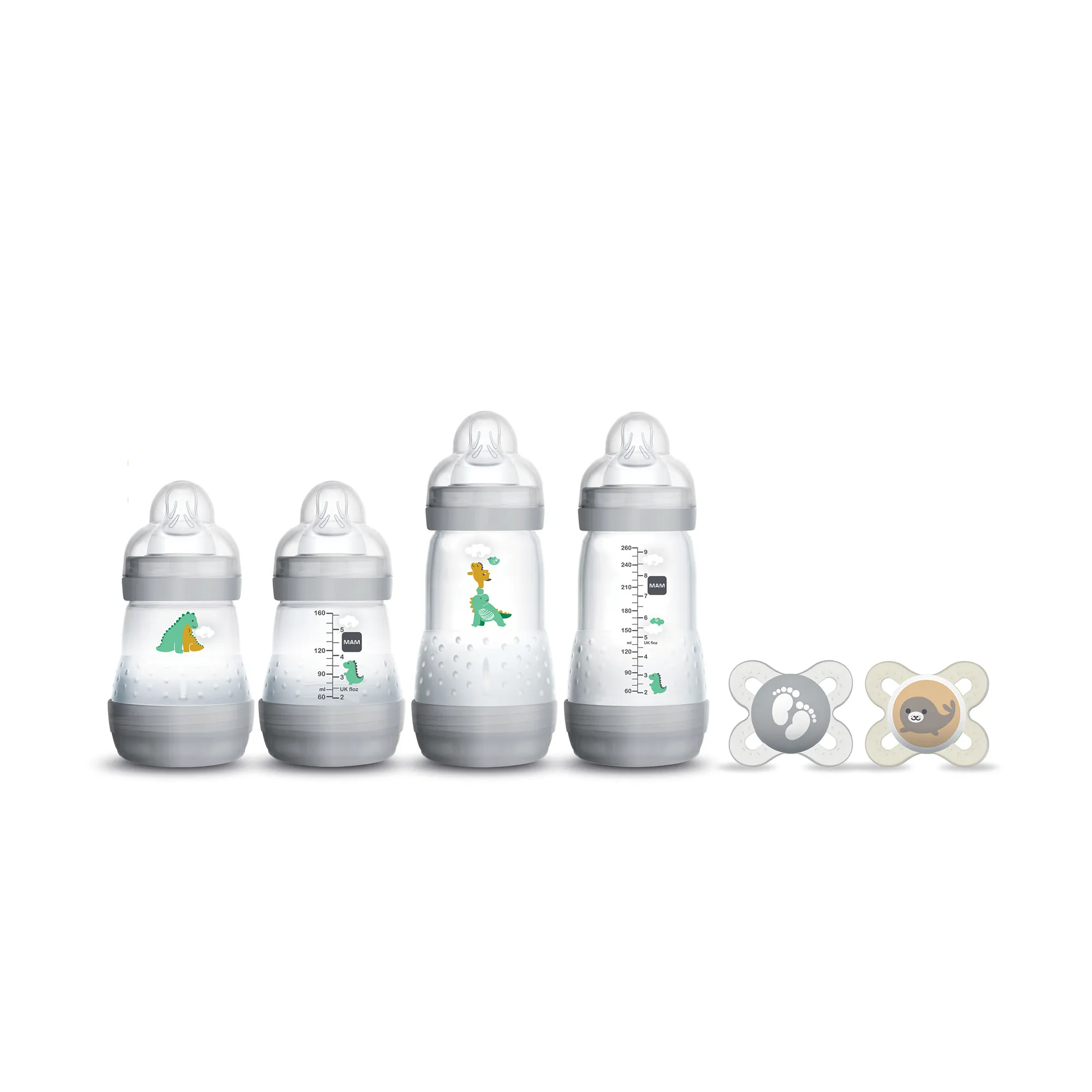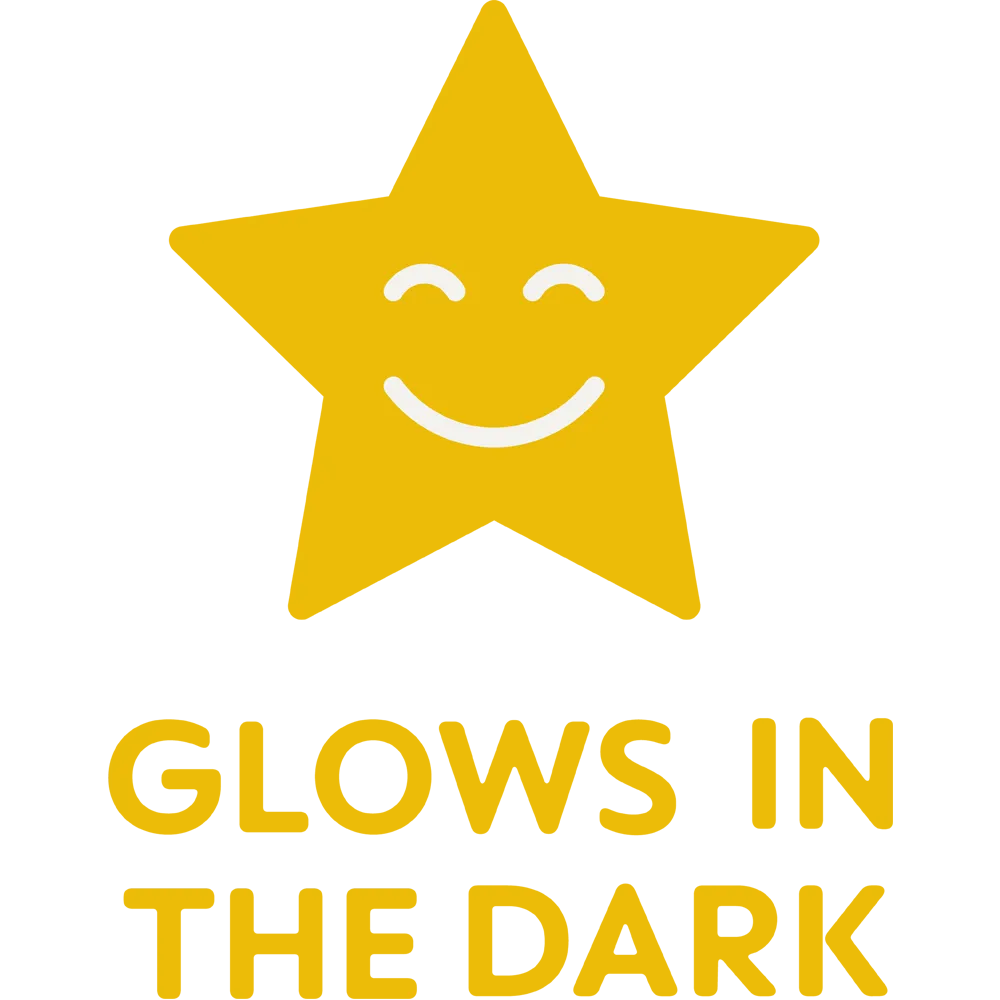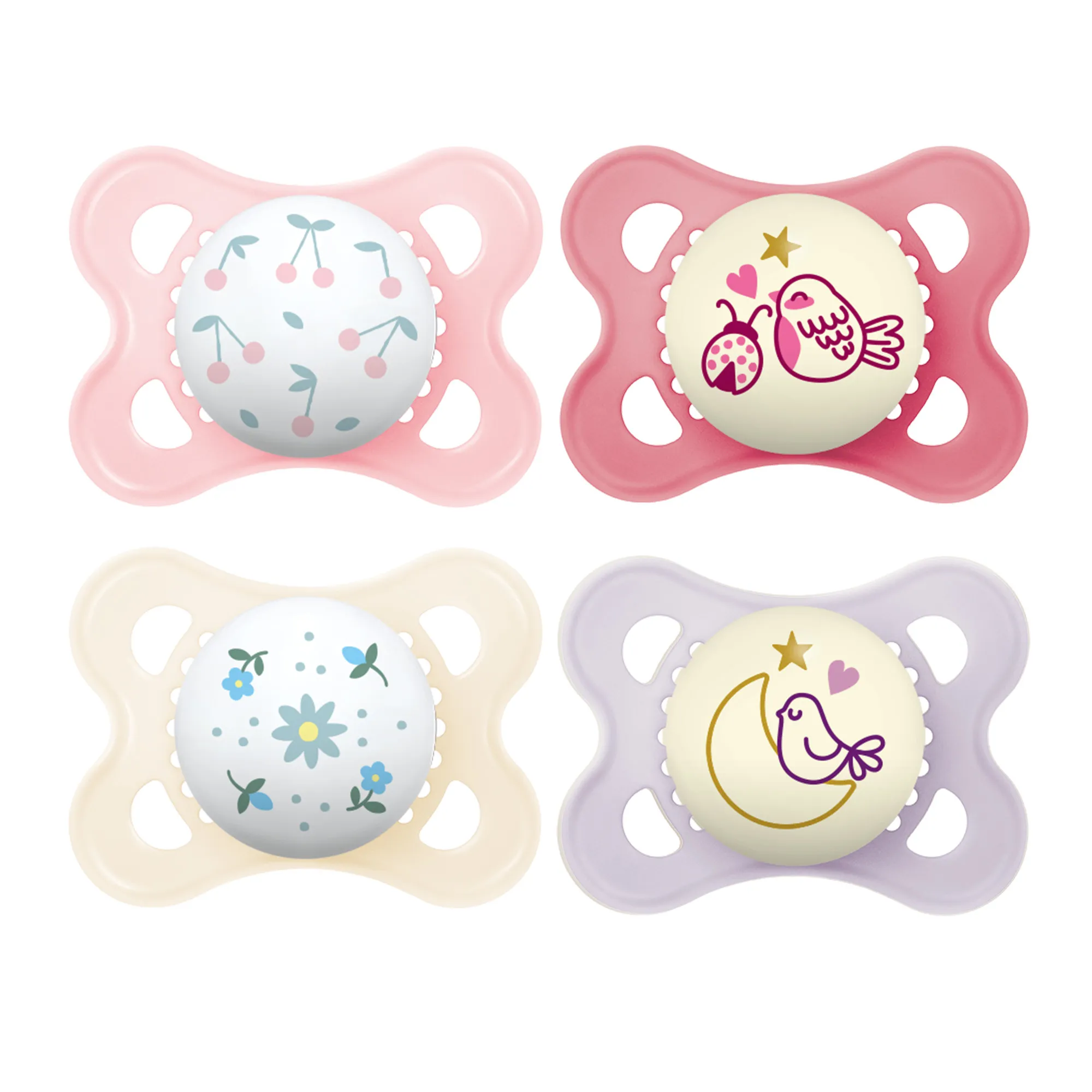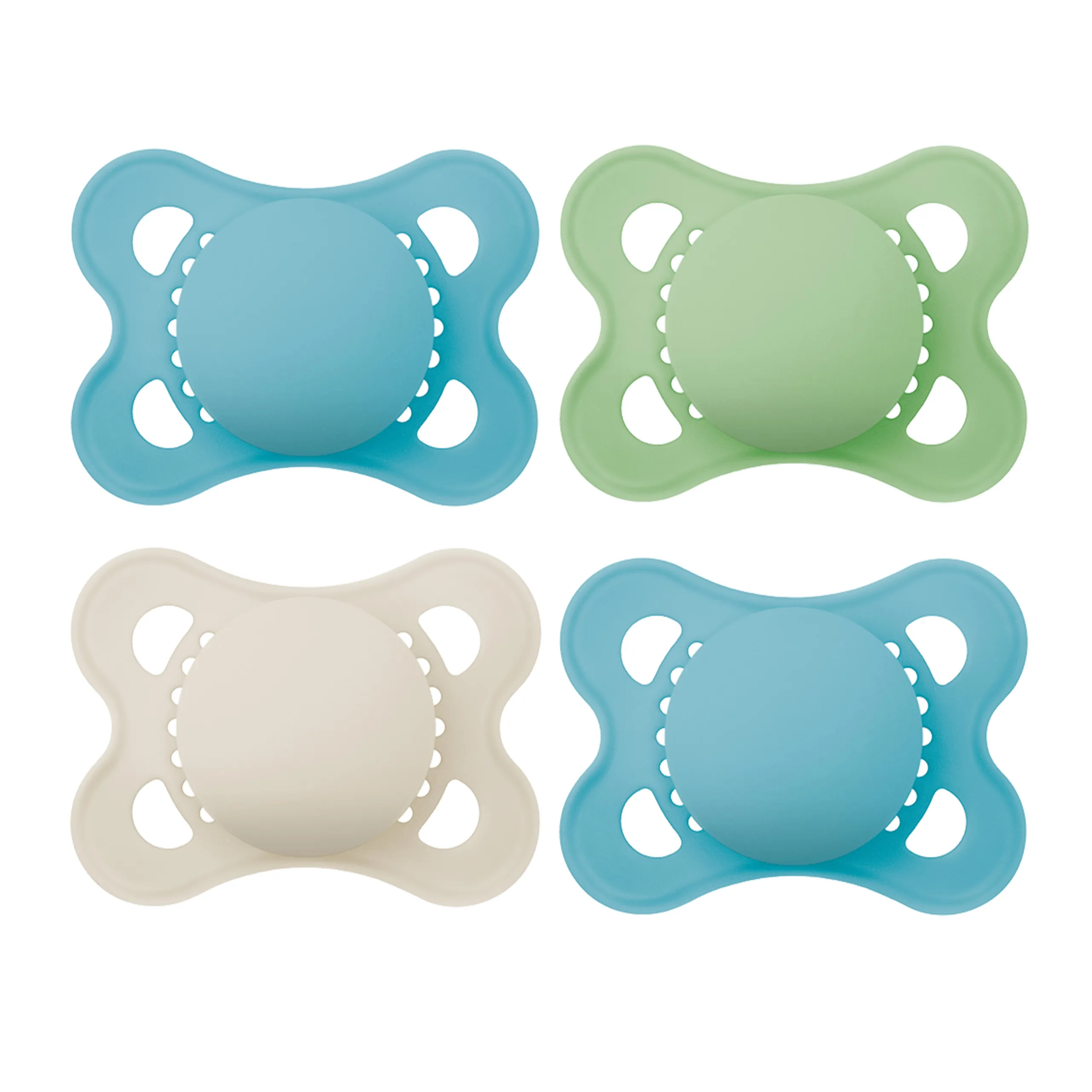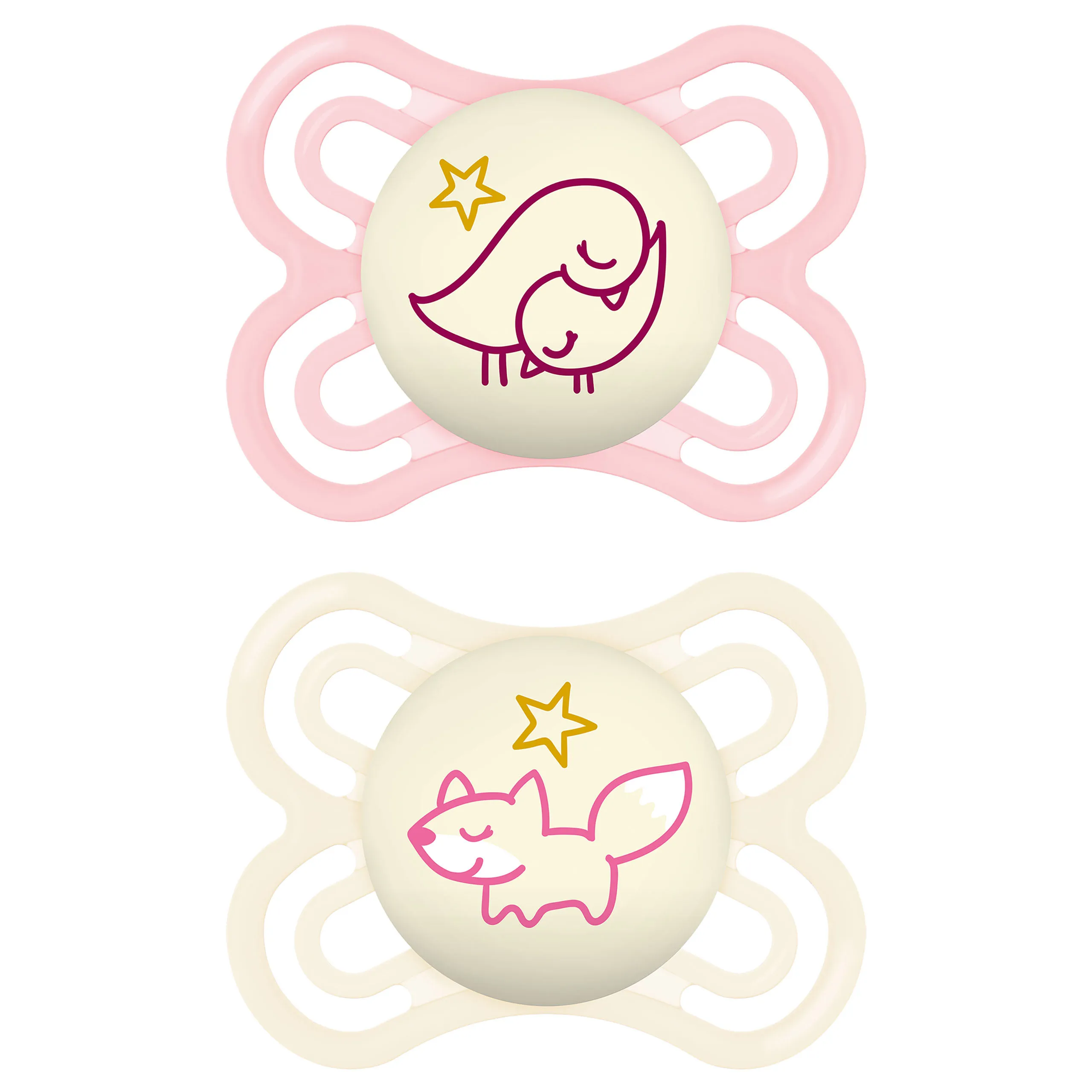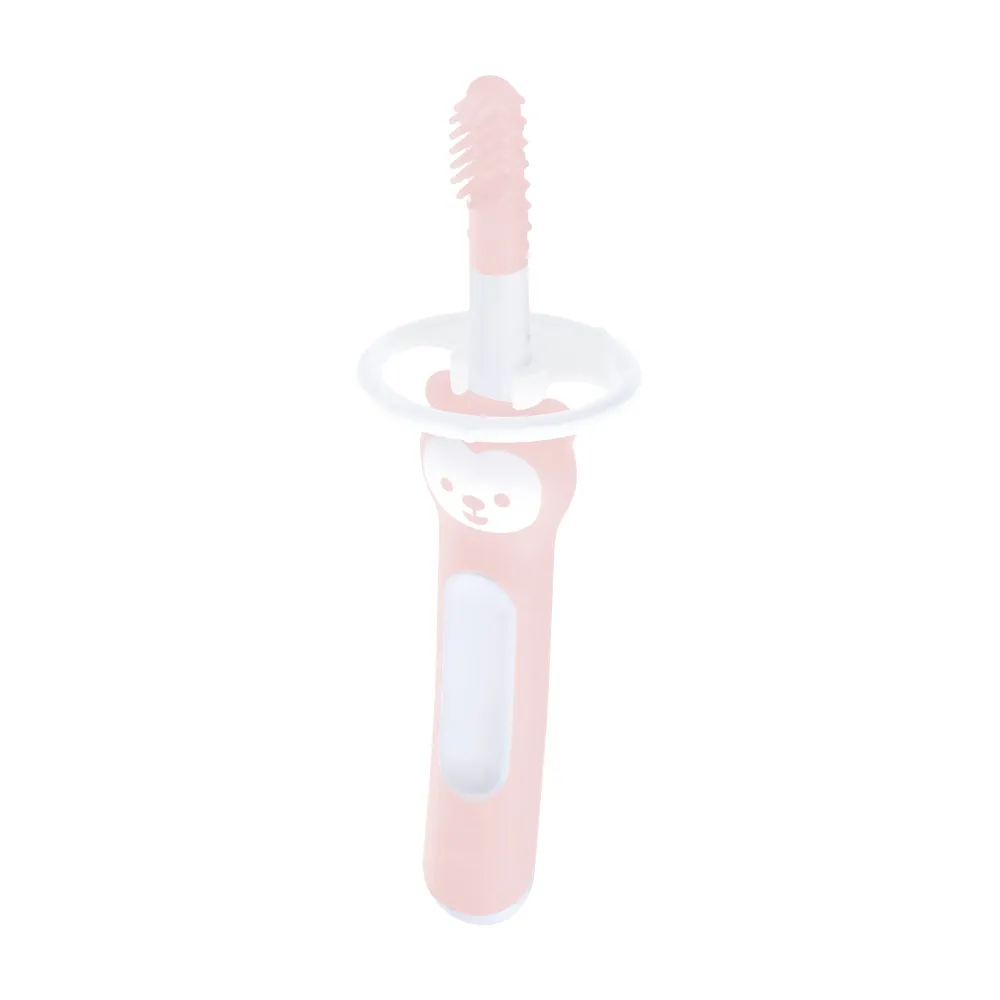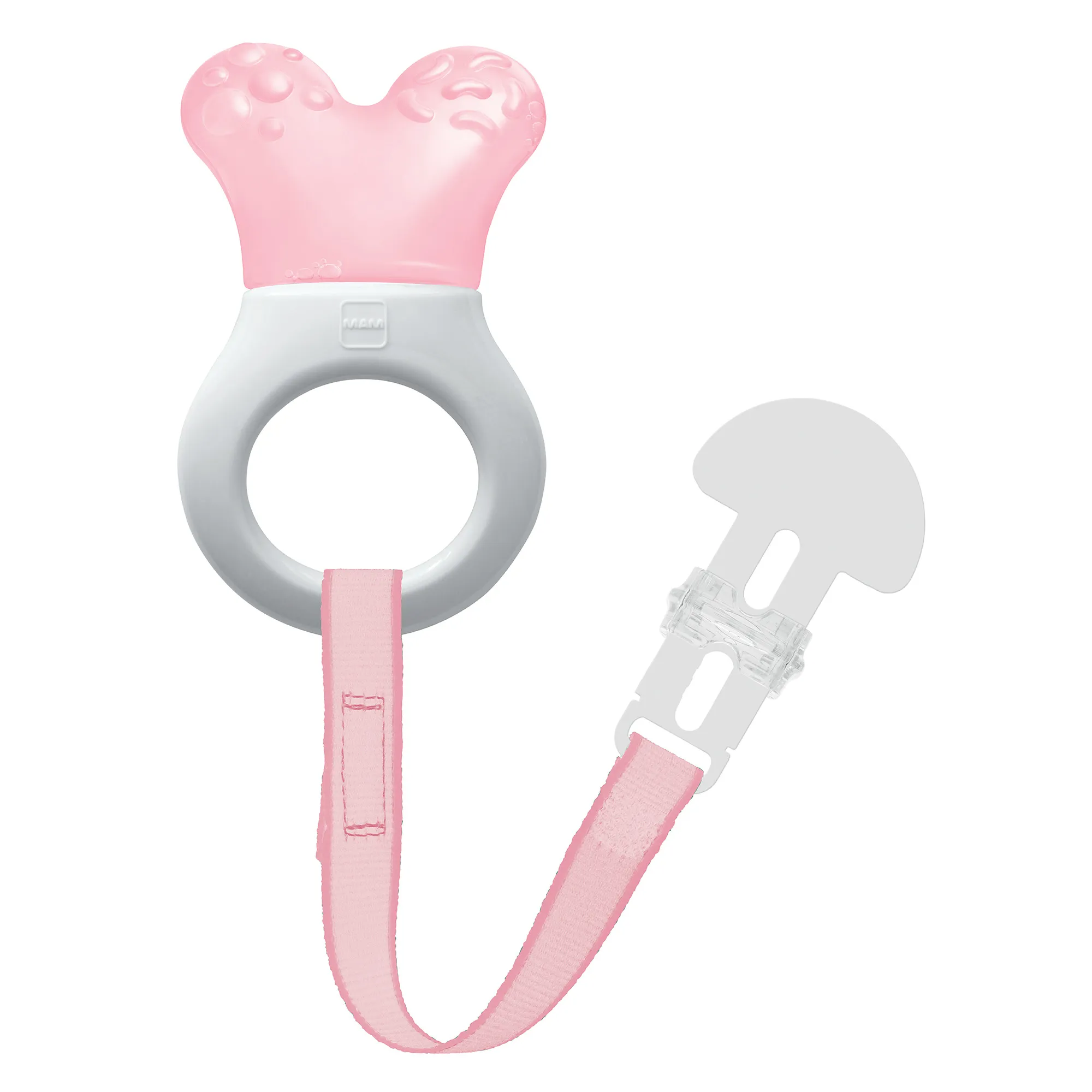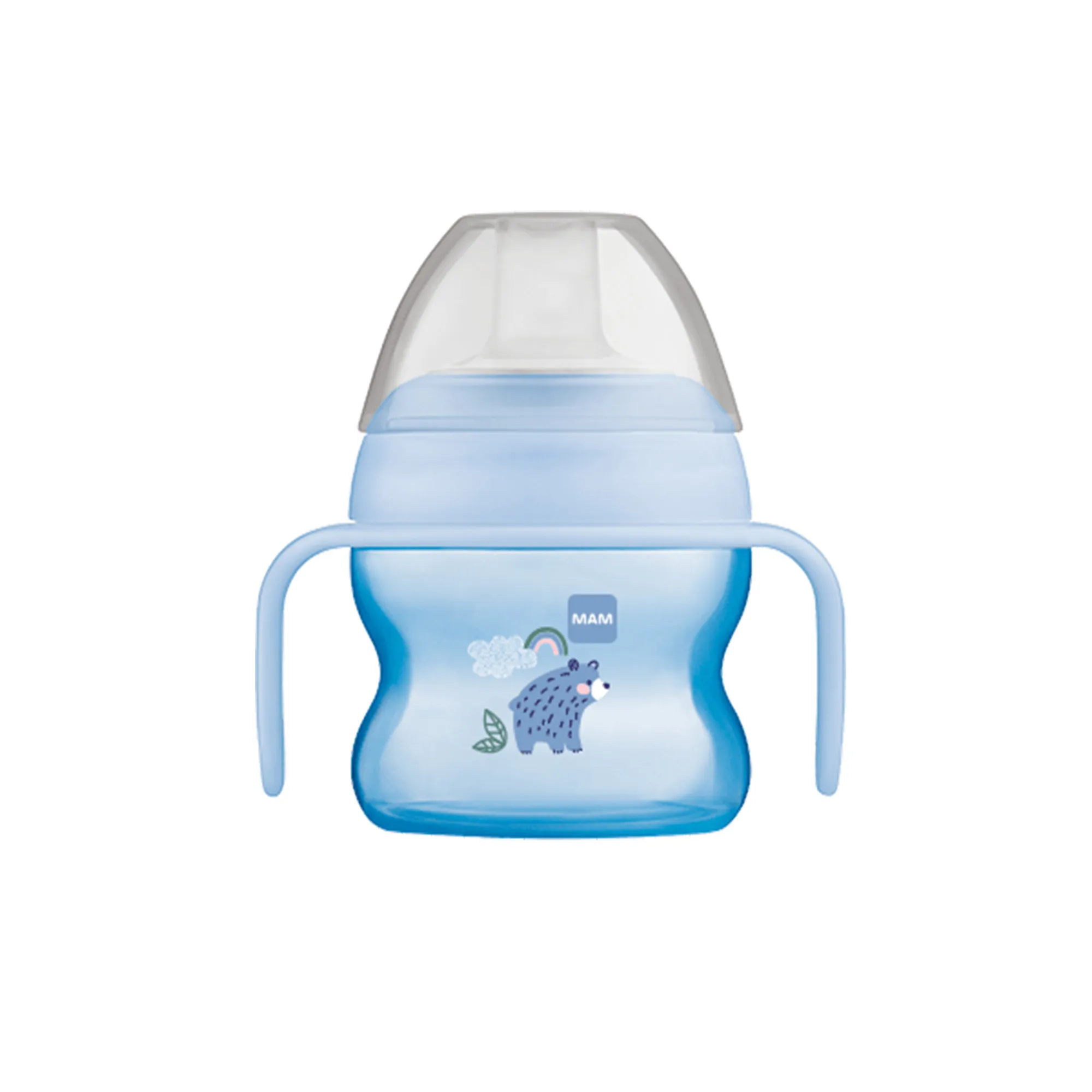Trainer+ 220ml Space Love
Designs may vary.
- 2 steps to independent drinking:
STEP 1 Spill-free teat: The spill-free teat with its SkinSoft silicone surface makes switching from breastfeeding to bottle or Trainer+ easy and supports baby’s first independent drinking tries.
STEP 2 Spill-free extra soft spout: With the spill-free extra soft spout babies learn the transition from breast or bottle to cup easily. - For an easy transition from breastfeeding or bottle to Trainer+ or cup
- Handles especially designed for baby’s small hands
- Wide openings for easy filling and cleaning

1. DUST CAP
Also doubles as a measuring cup thanks to the integrated scale
2. HANDLES
Non-slip design – ensures for a secure hold in baby’s hands
3. WIDE OPENING
Easy filling and cleaning
The product meets the requirements of European Standard EN 14350:2020.
Teat and symmetric spout fit all MAM Bottles and the Trainer+. Handles fit all MAM Bottles and the Trainer+ (except MAM Easy Start™ Anti-Colic 130ml).
°BPA/BPS free: All MAM bottles are made from materials free of BPS and BPA (BPA Free in accordance with Regulation (EU) No.321/2011)
| Age: | 4+ months |
|---|---|
| Color: | Blue, Pink |
| Size: | 220ml |
| Teat Material: | Silicone |
mam-cms.mamQualityIconBarTitle
¹ Market research 2009-2023, tested with 1,808 babies.
Four-month-old babies love drinking from a cup. The MAM Cup range provides them with the ideal support here. This will ensure that baby makes the perfect transition from breastfeeding or bottle feeding to independent drinking.
Bisphenol A (BPA) is an important component for the manufacturing of polycarbonate (PC), whereas Bisphenol S (BPS) is an organic chemical used to make polysulfone. Among other items, food packaging, plastic utensils and baby bottles are just a few examples of products made with PC, whereas the main usage of BPS is in thermal papers and inks. The problem: Trace amounts of chemical substances gradually leach out of the plastic into the food and might eventually get into the body. This can affect small children and infants in particular.
As a result of exposure to BPA, experts and studies have seen disruptions to the hormone system and brain, diabetes and heart damage as well as an increased risk of cancer. Although scientific evidence is not yet conclusive, the European Commission - based on the precautionary principle - has banned the usage of BPA in baby bottles in order to protect the health and safety of babies and small children.
Other questions?
Send us a message and we’ll get back to you shortly.
WRITE A MESSAGE
